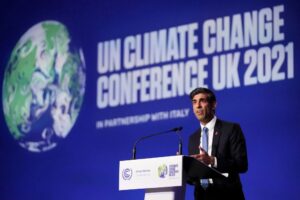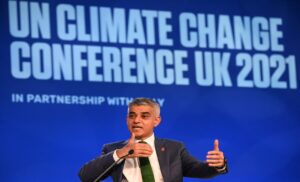
Day 11- Cities, Regions and Built Environmental Day
Today’s discussion and commitments are geared towards ensuring net-zero cities. Major highlights include:
- The UK pledged £27.5m of new funding for the new Urban Climate Action Programme (UCAP) to support cities targeting net zero. The programme, funded through International Climate Finance, will support cities across Africa, Asia and Latin America to take climate action and create a sustainable future, by helping them implement innovative climate action plans to become carbon neutral by 2050 and prepare low-carbon infrastructure projects to reduce emissions.
- UCAP will help cities facilitate projects like low-emission public transport systems, renewable energy generation, sustainable waste management, new climate-smart buildings codes and climate risk planning.
- The programme will be delivered in collaboration with the C40 Cities Climate Leadership Group, a global network of cities focused on climate action, and GIZ, the German development agency.
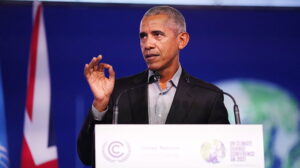
Day 10 – Transportation Day
Fossil-fueled vehicles have been a major contributor to climate change due to CO2 emissions. At the summit, agreements are being made to integrate Zero-Emission Vehicles (ZEV) around the world.
- Thirty countries, including New Zealand, Poland and Britain, have agreed to work together to make zero-emission vehicles the new normal by making them accessible, affordable, and sustainable in all regions by 2030 or sooner.
- Many emerging markets, including Rwanda, India and Kenya, agreed to accelerate the transition to ZEVs in their markets.
- The World Bank has launched a new World Bank trust fund that will mobilise $200 million over the next ten years to decarbonise road transport in emerging markets and developing economies.
- The UK has pledged to shift to clean trucks by committing to end the sale of most new diesel trucks between 2035 and 2040.
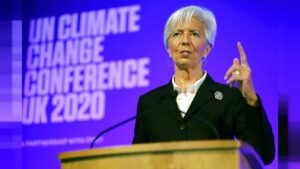
Day 9 – Gender, Science and Innovation Day
In sustaining climate action, countries worldwide have set out to create gender balance to ensure a sustainable environment. World leaders have also agreed to ensure that technological advancements deliver a clear path to climate action.
- Canada has committed to including 80 per cent of its $5.3 billion climate investments over the next five years target gender equality outcomes.
- Nigeria aims to expand on its Implementation Strategy for its National Gender and Climate Action Plan.
- The USA in promoting gender equity and equality has responded to climate change as a priority of its National Strategy on Gender Equity and Equality; It is investing at least $14 million of the Gender Equity and Equality Action Fund toward gender-responsive climate programming; and investing more than $20 million towards initiatives to increase women’s economic opportunities in the clean energy sector, strengthen action on gender-based violence and the environment, address barriers to women’s land rights, and support women farmers in East Africa to adapt to climate impacts.
- 47 countries have committed to building health systems that can withstand the impacts of climate change and which are low carbon and sustainable. These include 42 countries, representing over a third of global health care emissions, committed to developing a sustainable, low-carbon health system. In addition, 12 of these 42 countries have set a deadline of 2050 or earlier, by which their health system will reach net zero.
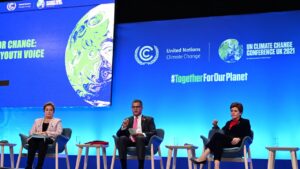
Day 8 – Climate Adaptation, Loss and Damage Day
Notwithstanding efforts to mitigate climate change, people across the world are already living in pernicious weather conditions. Therefore, today’s discussion centres around closing adaptation gaps and responding to climate impacts.
- The UK has announced new funding of £290 million to support the most vulnerable and calls for the world to be climate resilient by 2030.
- $232 million has been committed to the Adaptation Fund, the highest single mobilisation to the Fund and more than double the previous highest collective mobilisation with a $20m contribution from the UK. Commitments came from the USA, Canada, Sweden, Finland, Ireland, Germany, Norway, Qatar, Spain, Switzerland, the UK and the Quebec and Flanders governments.

Day 6 – Transforming Agriculture Innovation Systems for Humans, Nature and Climate
The Policy Dialogue on accelerating the transition to sustainable agriculture was intended to speed up efforts in transforming agricultural systems and land use as a medium of tackling climate change.
- 18 countries, including Vietnam, the US, the UK, and Sierra Leone, have contributed a policy briefing note that reflects on policy actions taken to advance the transition to sustainable agriculture.
- The Global Action Agenda on sustainable agriculture has secured more than 160 allies as diverse as the World Bank, WWF, World Food Programme, UN Foundation, Columbia Climate School, Bayer, Rainforest Alliance, and World Economic Forum e.t.c.
Day 5 – Youth and Public Empowerment Day
Young climate activists are demanding more climate action from global leaders. The activists, including Greta Thunberg and Vanessa Nakate, have taken to the streets of Glasgow to protest as the COP26 talks continue. Thunberg has been critical of the COP26 summit, labelling it the “most excluding COP ever“, saying it was a two-week celebration of business as usual.
- Over 23 countries have made national climate education pledges, including net-zero schools and putting climate at the heart of educational curriculums.
- The UK has made known its draft Sustainability and Climate Change Strategy to empower young people with the skills they need to drive the future of climate action. This includes the introduction of a Primary Science Model Curriculum that emphasises nature, the recognition of species, and the development of conservation skills.
- Civil society, business leaders and ministers also joined together in a special session to discuss including all aspects of society in climate action.
Day 4 – Energy Day
So far, forty (40) countries have agreed, for the first time, to stop developing and investing in coal power projects in other to phase out fossil fuel as an energy source.
As Day 4 progresses, other highlights include:
- The first case of COVID-19 was recorded at the conference, with the Mayor of Los Angeles testing positive.
- Despite China being the biggest polluter through coal, the country is yet to commit to stop developing/investing in coal projects.
- Poland is moving their deadline to end coal use forward from 2049 to at least 2039.
- Ukraine has also moved its coal use deadline from 2050 to 2035.
- Over 45 countries including the United Kingdom, Canada and Germany and 25 organisations including ACWA Power, GWEC, and Renew Power has committed to rapidly scale-up the deployment of clean power generation, policies, and energy efficiency measures in their countries and operations.
Day 3 – Finance Day
With world leaders leaving the COP26 summit, high-ranking officials will discuss the details of each government’s climate actions and commitments. Today’s discussions will focus on climate financing. Several countries will announce key financing goals and targets.
- UK Chancellor Rishi Sunak stated that the UK would be the first net-zero aligned financial centre. He also added that developed nations would provide $500 billion for climate financing over the next half-decade.
- The President of the European Commission, Ursula von der Leyen, has stated that she hopes countries will reach an agreement over the next two weeks that will deliver $100 billion annually to support the clean energy transition in developing countries in 2022.

Day 1 – 2
World leaders from over eighty countries met in Glasgow for the 26th edition of the United Nations Conference of Parties (COP) climate summit.
Several world leaders stated their improved climate actions and proposed ambitious plans to reduce their emissions and limit rising global temperatures.
- US President Joe Biden emphasised in his COP26 speech on Monday that “in an age where this pandemic has made so painfully clear that no nation can wall itself off from borderless threats, we know that none of us can escape the worst that’s yet to come if we fail to seize this moment.” He further obliged world leaders to concentrate efforts on developing a clean energy future to create more jobs and secure a sustainable ecosystem.
- Prince Charles addressing delegates spoke on the devastating effects of the Covid-19 pandemic on the global economy and called for a radical transformation of our fossil-fueled economy to renewable and sustainable energy systems.
- Boris Johnson, British Prime Minister, described the world as sitting on a ticking time bomb. He added that commitments should be backed up by actions such as – Drifting away from fossil fuels, using electric vehicles and planting trees worldwide.
On pledges and partnerships,
EU commission chief Ursula von der Leyen and the US president, Joe Biden, announced a global partnership to cut the emission of greenhouse gas – methane by 2030. Methane is one of the most potent greenhouse gases responsible for a third of current global warming.
Boris Johnson and Indian Prime Minister Narendra Modi launched a new flagship international initiative (Green Grids Initiative – One Sun One World One Grid) to accelerate the global transition to a clean powered world.
President Muhammad Buhari committed that Nigeria will become net-zero by 2060. While acknowledging the importance of COP26, Buhari said that climate change is not a future problem but a current challenge.
The UK announced several financing programmes and initiatives aimed at helping Africa withstand the impacts of climate change. Prime Minister Boris Johnson announced that the UK will provide a guarantee mechanism – the ‘Room to Run’ guarantee – to the African Development Bank (AfDB). This guarantee is expected to unlock up to £1.45 billion ($2 billion) worth of new financing for climate resilience projects across the continent.


